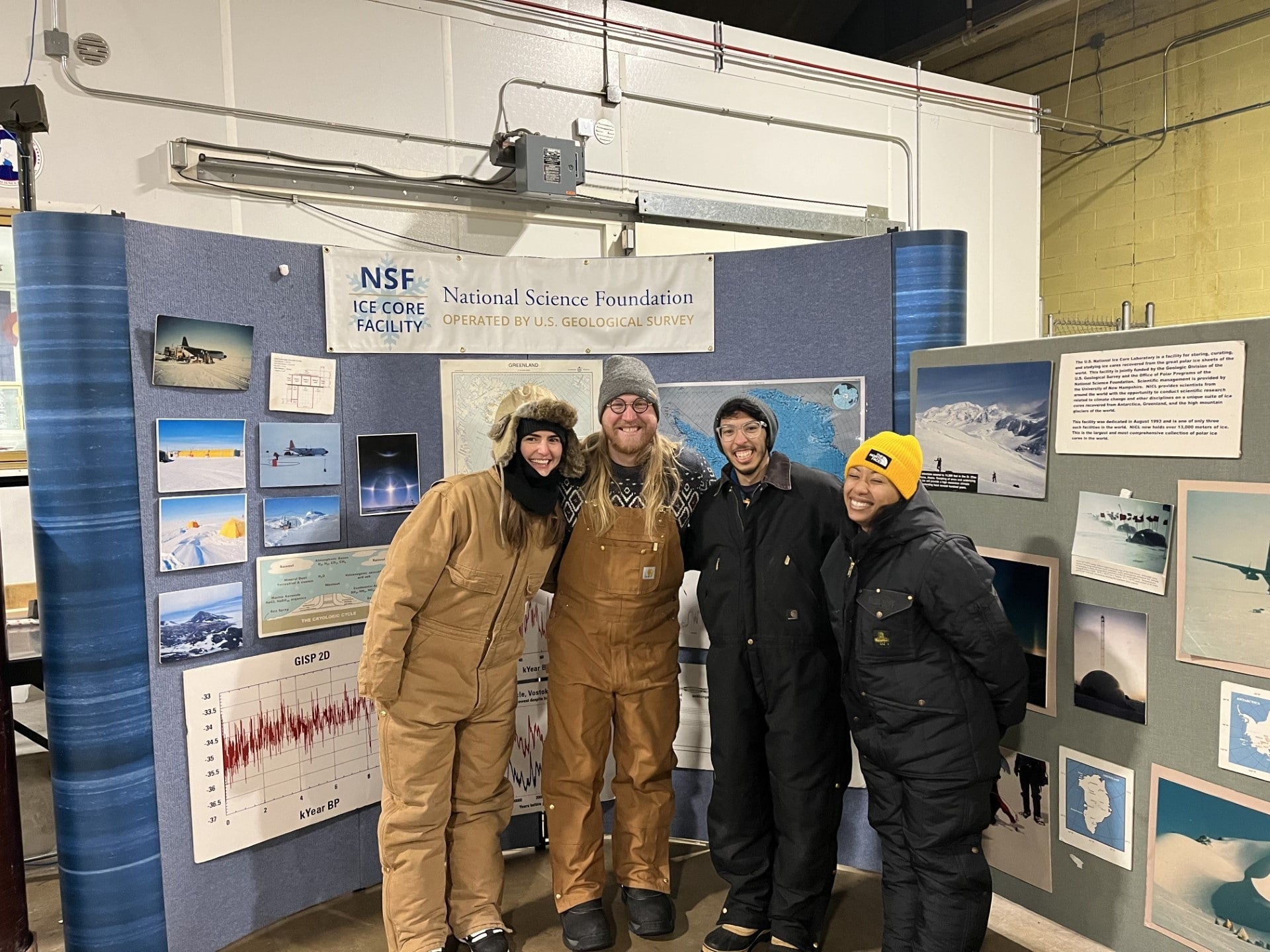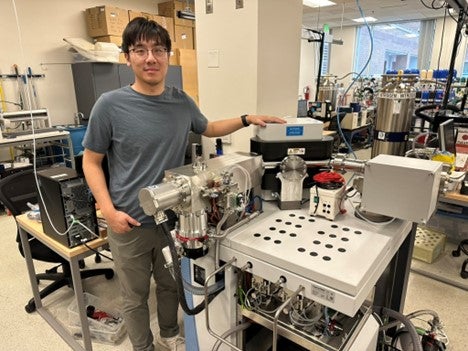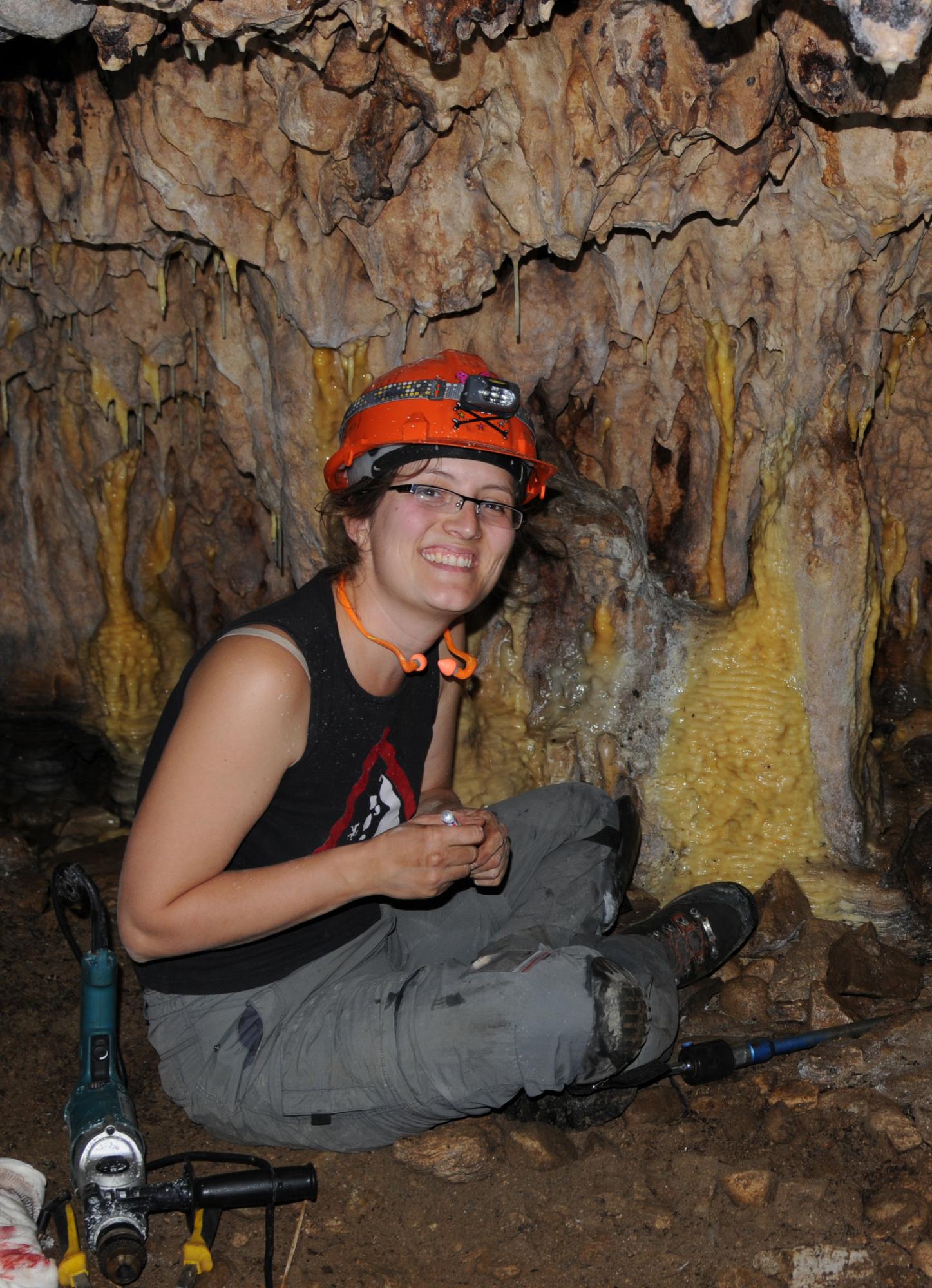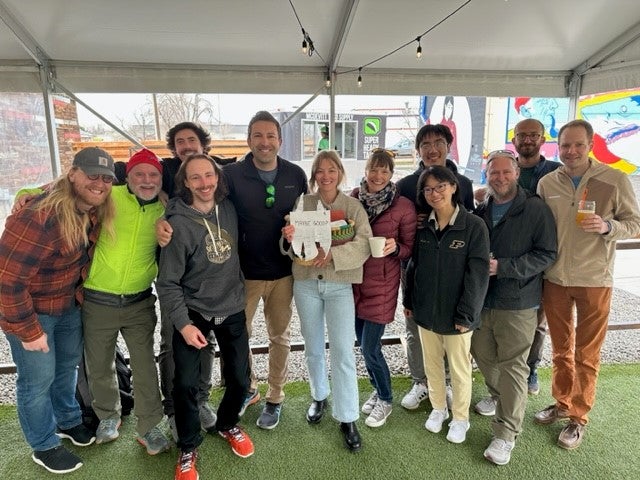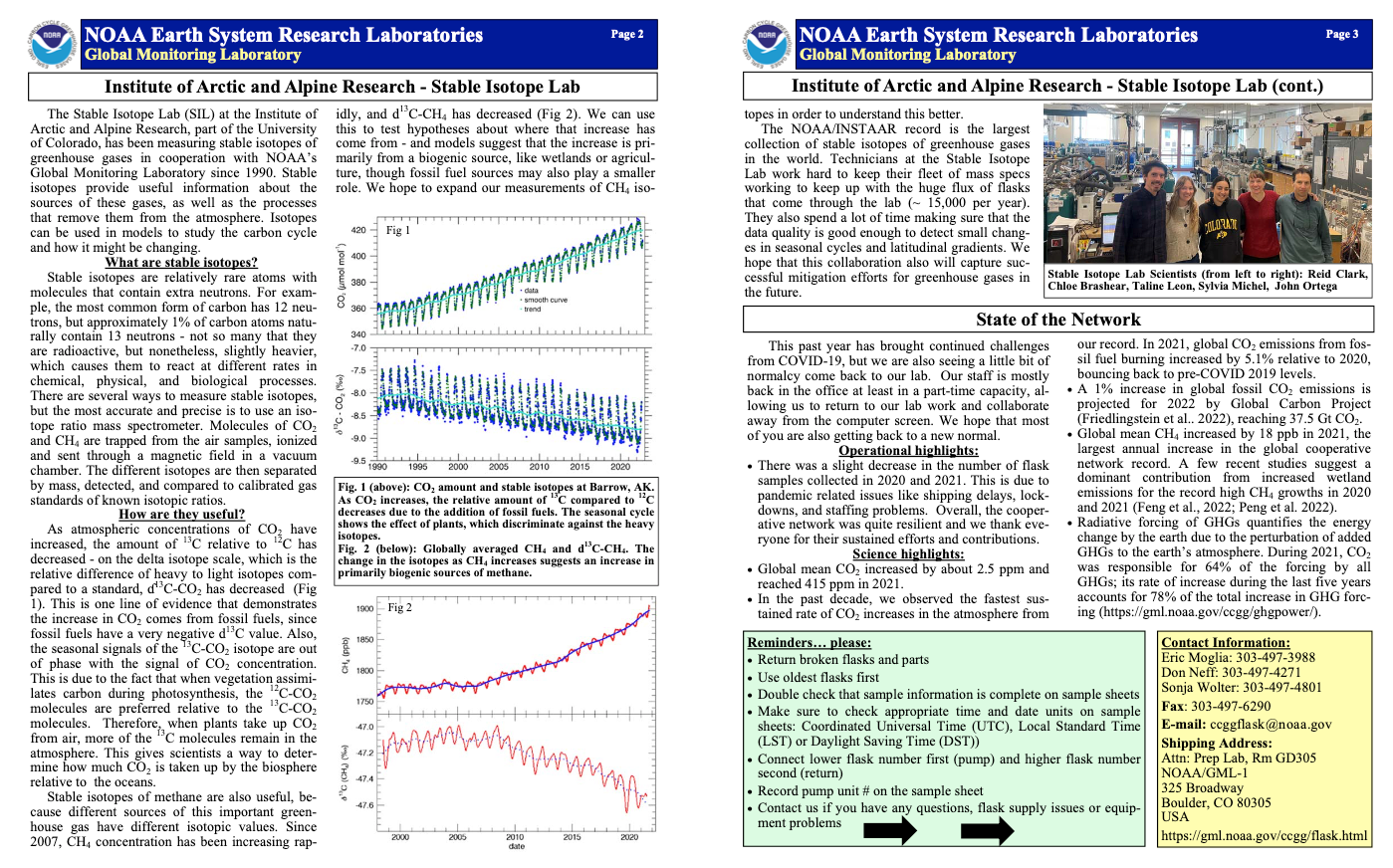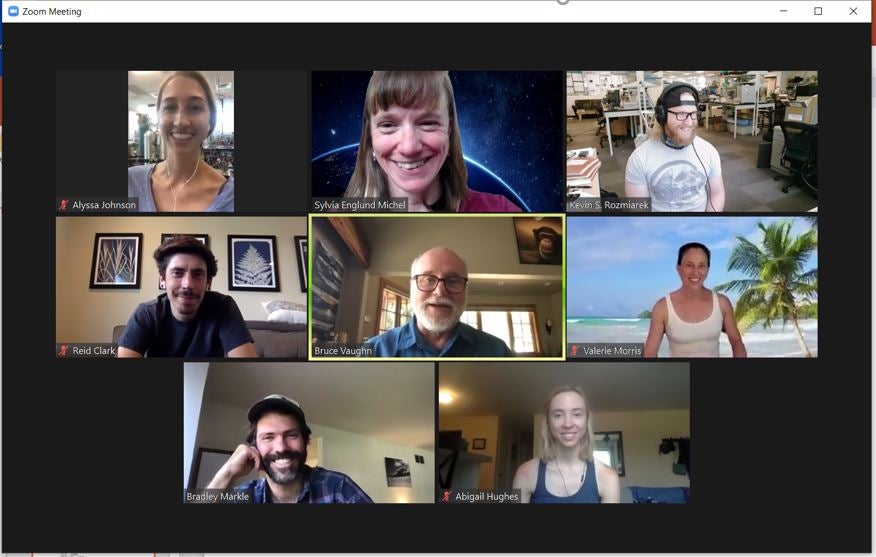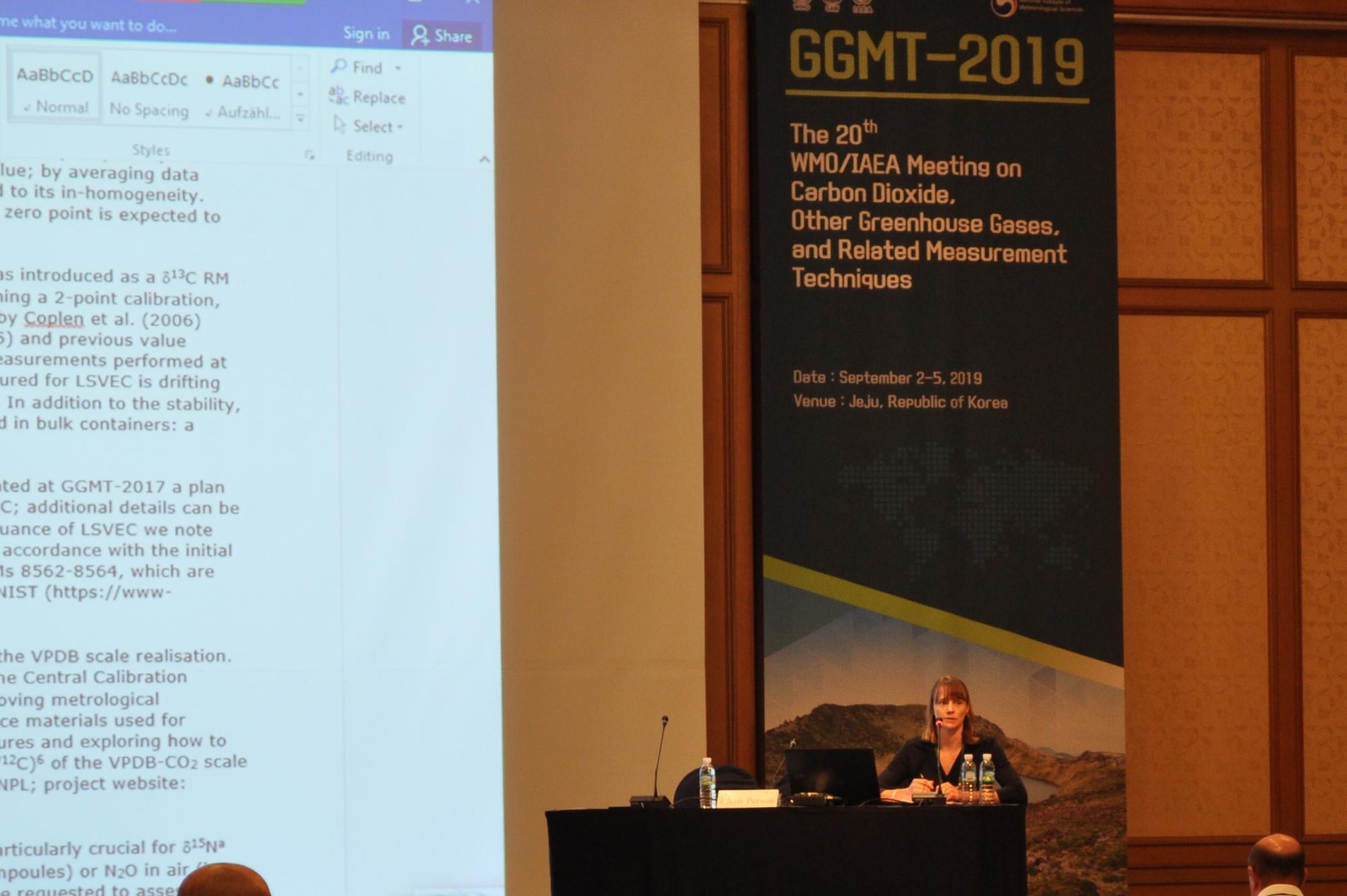Blog - Stable Isotope Lab
We measure carbon and oxygen isotopes in air and ice to better understand Earth systems, including the carbon cycle, past climate, and methane.
Click a photo to zoom & see caption
We don't mind the cold!
SIL students headed down to Lakewood, Colorado to process ice cores at the National Science Foundation's Ice Core Facility. The project, led by SIL student Kevin Rozmiarek, looks to access the effects of multi-decadal storage on the water isotope composition of ice as well as their replicability. Starting with the modern and going back to the first ice core site, Camp Century, this study will inform how well we can trust reanalysis of archived ice. Special thanks to Curt La Bombard, Richard Nunn, and Theo Carr at NSF-ICF for their help!
New Faculty member joins the SIL Team!
In August, Jianghanyang (Ben) Li joined Department of Atmospheric and Oceanic Sciences and INSTAAR as an assistant professor AND the SIL team. His research is at the intersection of climate sciences, stable isotope geochemistry, and atmospheric chemistry. A major goal of his research work is to leverage stable isotopes and analytical chemistry as powerful tools, to enhance our understanding of the how greenhouse gases and other trace gases behave in the atmosphere, and their roles in affecting global climate and regional air quality.
Born and raised in Huzhou, China, Ben earned his B.Sc. degree in geochemistry from the University of Science and Technology of China in Hefei, then M.Sc. in geochemistry at the University of Alberta. Afterwards, Ben received his Ph.D. training at Purdue University in the realm of atmospheric chemistry, with a special focus on applying the stable isotopic geochemistry tools to better understand the chemical processes in the atmosphere. Before joining the Stable Isotope Lab, Ben worked at the Global Monitoring Laboratory at the National Oceanic and Atmospheric Administration as a postdoctoral associate.
Ben, we're so happy to have you on board!
SIL welcomes new team member Kerstin Braun
In May 2023 Kerstin Braun joined the ranks of SIL to analyze stable isotopes in CO2. Kerstin grew up in southern Germany and has Masters from the University of Tuebingen in Micropaleontology/Paleoclimatology. She also has a PhD from the Hebrew University of Jerusalem, Israel (yes she lived there for 4 years) for which she worked on reconstructing South African past climates using stable isotopes in speleothems. Kerstin came to the US for a Postdoc at Arizona State University in the fall of 2014 and now lives in Fort Collins with her spouse Rich and daughter Kaylee. Already she has disassembled and reassembled our Isoprimes completely, and we don't know how we ever managed without her.
The Alaska NNA team battles swarms of mosquitoes and lives to tell about it.
SIL headed to Alaska for our Navigating the New Arctic project investigating methane release from permafrost. The team - Paloma Siegel. Taline Leon, Valerie Morris, Kevin Rozmiarek, and Chase Rupprecht(left to right) - measured methane in the air by flying a custom spectrometer fit into a fixed-wing drone. They also flew an airborne radiometer, probing the water content of the soil column. Measurements were focused on Big Trail Lake just north of Fairbanks, the highest known methane-emitting wetland on the planet! They also did some scouting of other field sites around the area.
We say "tot ziens" (goodbye) and "beste wensen" (best wishes) to Chloe!
After more than two years as a rock-star stable isotope technician working on stable isotopes of carbon dioxide AND two years of getting a MS in Geology studying stable isotopes of water in ice cores, Chloe Brashear is leaving INSTAAR to pursue a PhD at the University of Utrecht. We are so sad to see her go - and so excited for her to begin this next chapter!
An isotope introduction
NOAA's Global Monitoring Laboratory produces a short newsletter. For the last issue, Sylvia wrote a summary about the Stable Isotope Lab, explaining what stable isotopes are and how they can help us understand our climate and environment. For instance, we can tell from carbon isotopes in the air not only that there's more carbon dioxide in the atmosphere now, but that the increase comes from fossil fuels. Want to see more? View the newsletter PDF.
SIL survives the covid times
When the world shut down, we kept the lab running. There were some hard days, troubleshooting instruments over face time, working odd hours so there weren't too many of us in the lab at a time, delivering flasks and pfps out the back door. .. but we did the best we could. Field seasons in Greenland and Alaska were canceled, which was disappointing to say the least. And amidst all the craziness, keeping up with the website was not a high priority! Lab meetings over zoom kept us in touch, and we took the opportunity to invite notable guests to speak to us, including Dr. Eric Steig (University of Washington), Dr. Heiko Moossen (Max Planck Institute), Dr. Peter Sperlich (NIWA, NZ), and Dr. Thomas Rockmann (Utrecht University, The Netherlands). We have been working almost normally since summer of 2020. We enjoyed some outside happy hours in the cold, gratefully embraced the arrival of vaccines, had a brief respite from masks in the summer and are now on board with masks and boosters as we move into another winter. Along the way, we said goodbye to Alyssa Johnson and Seth Kurtz (we miss you guys!), Abby Thayer rocked her PhD dissertation, and both Will Skorski and Chloe Brashear defended their Masters theses. Abby now has a job in environmental consulting, Will is off to South Pole, and Chloe joined us as a PRA. Oh, and did I mention that we hired a new faculty member, Dr. Bradley Markle? Maybe I'll add some more detail about all this big news ... when we get a new website, coming soon! November, 2021.
SIL finds solidarity at GGMT
Sylvia leads the discussion section of stable isotopes of greenhouse gases.
In early September 2019, Sylvia and Bruce, along with lots of NOAA colleagues, went to the 20th WMO/IAEA Meeting on Carbon Dioxide,
Other Greenhouse Gases, and Related Measurement Techniques (GGMT-2019) on Jeju Island, South Korea. This meeting, started by Dave Keeling and formerly called the CO2 experts meeting, is a gathering of people who make careful measurements of greenhouse gases for atmospheric monitoring. These are our people! Sylvia presented a talk called "JRAS-06 or bust - The INSTAAR Stable Isotope Lab revises its ties to primary standards and releases a revised data set of d13C-CO2 and d18O-CO2", referring to a change in our local realization of the VPDB-CO2 scale. Stay tuned for more on that. Sylvia also presented a poster regarding error in our methane isotope measurements, and Bruce presented a poster regarding the drone as a tool for atmospheric sampling. It was a great meeting, despite a near-direct hit by Typhoon Lingling. And Korean barbeque is amazing. September 2019
SIL is flying skyward!
Black Swift Technologies UAV launches from the surface of the Greenland Ice Sheet at EGRIP camp. The UAV flies to nearly 5,000 feet above the surface, measuring temperature, relative humidity, pressure, and then takes 6 air samples autonomously. Navigation is via a tablet, and is per-programmed. Launch is pneumatic powered at 6-G force.
Following a successful proof of concept run in 2018, and some Boulder-based testing, our drone team returned to EGRIP in summer 2019 with a vengeance. Sporting the new Blackswift S2 fixed-wing UAV, we took to the skies sampling water vapor up to 1600m! Here is our maiden flight ... with many more to come! June 2019.
Note: Loading may take awhile


